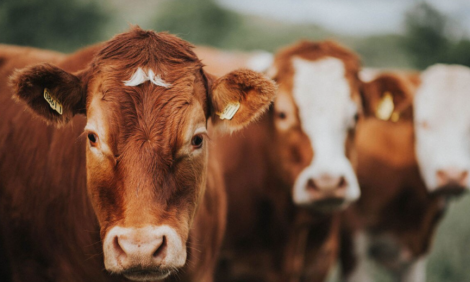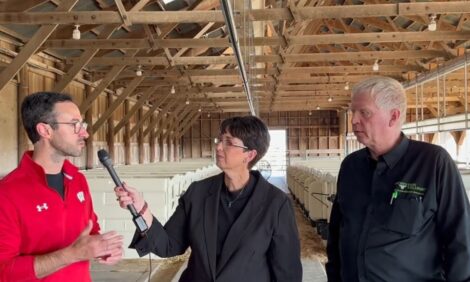



The Welfare Debate 2: Boehringer Ingelheim Welfare Forum Sparks Debate Over Veterinary Role in Promoting Welfare
The debates of the sixth animal well-being conference in Bilbao this summer are discussed in a three part series. This second installment discusses the role vets play in welfare, deciding that vets should routinely inspect cattle for welfare issues and not just look at empty cows and displaced abomasums.
*
"Welfare is a source of income for veterinary clients and the vet is a key person to give advice on animal welfare."
Should Veterinary Surgeons Promote Higher Welfare Food to Consumers?
Vets have an important role to play in educating consumers on the welfare of farmed animals, while promoting higher welfare assurance schemes, said Sean Wensley (Senior veterinary surgeon at the People’ Dispensary for Sick Animals (PDSA), UK).
He explained how the UK had already demonstrated the influence of food standards labelling on shopper purchasing habits.
“Labelling does help drive sales,” said Mr Wensley. “For example between 2006 and 2011 the number of broilers reared to Freedom Foods Standards in the UK went up 60 per cent while pigs reared to the same standard increased by 84 per cent . If the consumer is better informed, it can affect demand.”
With vets acting as trusted voices on animal welfare on a global scale, they have a vital role in pushing such a trend in high welfare food sales, he said.
There were already examples where vet organisations had taken the lead in selecting high welfare produce. For example, the UK Association of Veterinary Students made a conscious decision to only buy pizzas containing meat produced from animals that had been stunned at slaughter.
“The British Cattle Veterinary Association also said they strongly believed in the Red Tractor Assurance logo for red meat which could set a precedent for other veterinary associations,” said Mr Wensley. The key was for vets to lead by example.
In practice he also said the profession could easily distribute consumer shopping choice information and leaflets to clients.
On-farm Welfare Audits - an Opportunity for the Veterinary Profession?
Vets are ideally positioned to help dairy producers achieve high welfare on farm, said Dr Francesco Testa (Bovine practitioner for the technical services for farmers, Bergamo, Italy).
“There is a real opportunity for vets to perform farm audits,” he said. “Welfare is a source of income for veterinary clients and the vet is a key person to give advice on animal welfare.”
Dr Testa explained how welfare audits carried out by the Technical Service to Farms (SATA) in the high milk producing region of Lombardy in Italy had helped dairy farmers target areas for improvement by using the SATA Welfare Index (IBS).
He urged veterinary surgeons to look at all the aspects affecting cow welfare when going on farm for routine checks, rather than just looking at the number of empty cows or incidence of displaced abomasums.
“Farmers listen very carefully to vets. This is a good opportunity for vets to share technical advice,” he said.
Dr Testa said farm meetings were also a practical and effective way of communicating the animal welfare benefits of making management changes on farm. “Get dairy farmers together, get a sponsor to pay for dinner and then discuss issues,” he said.
“This will help increase awareness and allow the sharing of information. Effective changes made by other farmers help our clients to be convinced of the utility of change. Farm meetings or visits are a tool to encourage farmers reluctant to face welfare issues.”
| Read more Boehringer Ingelheim News here |



